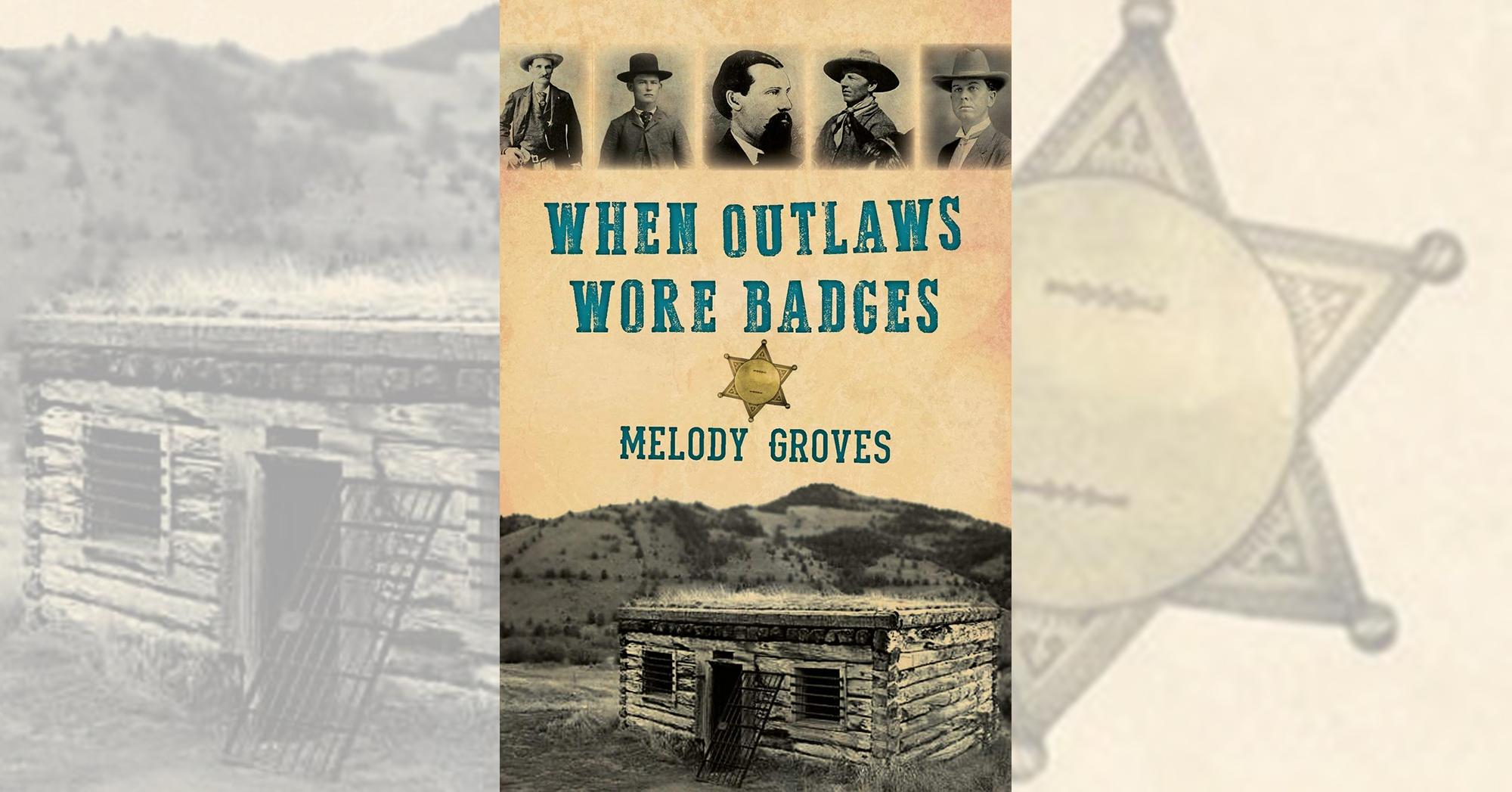When Outlaws Wore Badges, by Melody Groves, TwoDot, Helena, Mont., and Guilford, Conn., 2021, $18.95
Good guys in the real West weren’t always good. Sometimes they were as bad as the outlaws they pursued. Among the most intriguing such characters in this book is Burt Alvord, who while serving as town marshal of Willcox, Arizona Territory, set up one of the most unique train robberies ever recorded. On the evening in question Alvord and accomplices sat down to play poker in the back room of Schwertner’s Saloon, their game off limits to anyone but Schwertner’s waiter (who was obviously in on the deal). Almost when the door slammed shut Alvord and cohorts left their cards on the table and slipped out a window to rob a passing Southern Pacific train. Before anyone missed them, they returned to their cards.
Soon enough the engineer backed his train into Willcox and blew a warning whistle to alert the town. The men drinking in the front of the saloon decided they had better disturb the sheriff’s game and report the holdup. When they did, they found Alvord in his chair, holding a hand of cards and no doubt feigning surprise. The marshal quickly formed a posse of his fellow poker players—the very men who robbed the train! Alvord actually got away with that robbery and went on to pull several other successful heists before eventually landing in the pokey.
In these fast-paced 164 pages Melody Groves profiles Alvord and more than a dozen other lawmen who turned a trick or two on the other side of the law. Notable among them was Sheriff Henry Plummer of Bannack, Montana Territory, who was hanged by vigilantes for heading up a gang of road agents. Other featured Westerners who spent time both wearing badges and breaking the law include Milton Yarberry, Albuquerque’s first town marshal; two members of the infamous Dalton Gang; the Dodge City Gang of Las Vegas, New Mexico Territory, which included the likes of Hoodoo Brown (born Hyman G. Neill), J.J. Webb and “Mysterious Dave” Mather; and Tom Horn, who was a Pinkerton man and a paid assassin. Even renowned lawman Wyatt Earp stole horses and ran brothels. When Outlaws Wore Badges is a good primer of men who led double lives, wearing both the black hats of villains and the white ones of lawmen.
—Candy Moulton
This post contains affiliate links. If you buy something through our site, we might earn a commission.





